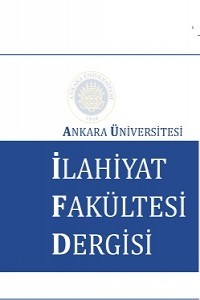Kant'ın Din Anlayışı
Kant, dini, tüm ödevlerimizin tanrısal buyruklarmış gibi görülmesidir, şeklinde tanım- lamaktadır. Bu şekilde tanımlayarak Kant, din ile ahlâk arasındaki yakın ilişkiye dikkat çekmektedir. O, din ve dindarlık için ahlâklılıktan fazla bir şeyi gerekli görmemektedir. Kant, akıl dini olarak tanımladığı kendi din anlayışını, vahyedilmiş din olarak gör- düğü Hıristiyanlığın karşısına koymaktadır. O, vahyin imkânını kabul etmekte, ancak tarihsel gerçekliğini reddetmektedir. Ona göre, Hıristiyanlık ancak ve ancak akıl dinine uyduğu sürece makbuldür. Hıristiyanlığın kabul edilebilir olması için tüm öğretileri- nin ahlâklılığa göre yorumlanması gerekmektedir. Dolayısıyla Kant için yegâne din, ahlâklılık veya akıl dindir.
Kant s Notion Of Religion
Kant defines religion as the recognition of all duties as divine commands. By defining so, he calls attention to the strict relation between religion and morality. He thinks that there is no need other than morality. He calls his view of religion as religion of reasonand contrasts it with Christianity, which calls it as revealed religion . Kant accepts the possibility of revelation but rejects its reality in history. In addition, he thinks that Christianity is acceptable if and only if it is compatible with religion of reason. For Christianity to be acceptable, all its doctrines have to be interpreted according to morality. Therefore, for Kant the only religion is morality or religion of reason.
___
- Kant, Immanuel, Religion Within The Boundaries of Mere Reason, Religion and Rational Theology, terc. ve ed. Allen W. Wood ve George DiGovanni, (Cambridge: Cambridge University Press, 2001) içinde.
- ___, Lectures on The Philosophical Doctrine of Religion, Religion and Rational Theology, terc ve ed. Allen W. Wood ve George Di Govanni, (Cambridge: Cambridge University Press, 2001) içinde.
- ___, Pratik Aklın Eleştirisi, terc. İoanna Kuçuradi, (Ankara: Türkiye Felsefe Kurumu, 1999).
- ___, The Conflict of Faculties, Religion and Rational Theology, çev ve ed. Allen W. Wood ve George Di Govanni, (Cambridge: Cambridge University Press, 2001) içinde.
- OBrien, Kelly S., Kant and Swinburne on Revelation, Faith and Philosophy, vol. 17:4 (October 2000).
- Rossi, Philip, Kants Philosophy of Religion, The Stanford Encyclopedia of Philosophy (Winter 2009 Edition), Edward N. Zalta (ed.), URL=_____http://plato.stanford.edu/archives/win2009/entries/kant-religion/> (03.03.2010).
- Wolterstorff, Nicholas, Conundrums in Kants Rational Religion, Kants Philosophy of Religion Reconsidered, Philip J. Rossi ve Michael Wreen (ed), (Bloomington: Indiana University Press, 1991).
- Wood, Allen W., Kants Deism, Kants Philosophy of Religion Reconsidered, Philip J. Rossi ve Michael Wreen (ed), (Bloomington: Indiana University Press, 1991).
- ___, Rational Theology, Moral Faith, and Religion, The Cambridge Companion to Kant, Paul Guyer (ed), (Cambridge: Cambridge University Press, 1992).
- ___, Religion, Ethical Community and the Struggle Against Evil, Faith and Philosophy, 17:4 (October 2000).
- Yandell, Keith E., Who is The True Kant? Philosophia Christi, 9:1 (2007).
- ISSN: 1301-0522
- Yayın Aralığı: Yılda 2 Sayı
- Başlangıç: 1952
- Yayıncı: ANKARA ÜNİVERSİTESİ > İLAHİYAT FAKÜLTESİ
Sayıdaki Diğer Makaleler
Kur’ân’ın Retorik Analizi: 101 ¨Êri‚a Sûresi Örnekliğinde Michel Cuypers’in Kur’ân’ı Anlama Metodu
İn ikâdın (Akdin Hukukî Varlık Kazanması) Mahiyeti
İslam Tasavvuf Kültüründe Mûsiki Âdâbı
Kur'an Kıraatinde Türklere Özgü Mahalli Okuyuş Sorunu
Ekonomik Realite Temelinde Altı Sınıf (Esnâf-ı Sitte) Hadisi Üzerine Bir Değerlendirme
Arap Belâgati: el-Câhiz’den ‘Abdu’l-Kâhir’e Kadarki Süreç
